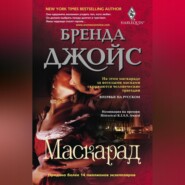По всем вопросам обращайтесь на: info@litportal.ru
(©) 2003-2024.
✖
A Lady at Last
Настройки чтения
Размер шрифта
Высота строк
Поля
Amanda realized she had no further options. If she couldn’t forcibly break her father out of prison and she couldn’t seduce Woods into a pardon, then what could she do?
She choked. What had de Warenne said, exactly?
Why not pardon Carre? If he doesn’t give up his pirating, I promise you I will be the one to bring him in.
Amanda leaped to her feet. He could help her—he had to!
WINDSONG LOOMED over Kingston Harbor, a huge and formal white stone mansion that Cliff had begun building five years earlier and had finally completed last year. Balustraded terraces jutted out over the harbor at the back of the house, while in the front a double staircase led to another terrace and the imposing white marble front entrance. Identical end pavilions were on the other side of the main house, which was a lofty three stories high. He could stand on the north parapet and look up the entire length of King Street, but he preferred to stand on the south terrace, sipping his best Irish whiskey and watching the incoming ships. He stood there now, having requested a drink from his majordomo, but his gaze was directed toward Port Royal, not out to sea. There he could make out the brick walls of Fort Charles. He raised his spyglasses.
The Amanda C was at anchor there, her rigging slashed, all masts broken, cannon holes in her deck. She was a small nine-gun sloop, once swift enough to outrun most naval vessels, now damaged beyond repair. She wasn’t flying the skull and bones of a pirate’s death flag, but the British tricolor.
Cliff lowered the spyglass. He did not want to brood over Carre’s fate or his daughter. Carre was in Spanishtown, awaiting his execution on the morrow. He wished he knew where La Sauvage was. She’d fled so quickly she might have been a vanishing ghost.
He could still recall the feel of her firm but soft body in his arms, even though he damned well wished to forget it.
“Papa! Papa!”
Upon hearing the happy cry of his beloved daughter, Cliff turned, beaming, all thoughts of the wild child-woman gone. Ariella was only six years old, with huge and brilliant blue eyes, an olive complexion and surprisingly golden hair. She was as beautiful as her coloring was exotic, and whenever Cliff looked at her he felt no small amount of awe that this stunning child was his. “Come, sweetheart.”
But she had already dashed across the terrace and into his arms. He laughed, lifting her high and then hugging her tightly. She was clad like a little English princess in the finest silk gown his money could buy, a strand of perfect pearls around her small throat. He put her down and she asked, “Did you go sailing today, Papa?” She was very grave. “Because you promised me that you would take me when you next set sail.”
He had to smile. She could pretend all she wanted, but he knew very well that she did not like sailing. “I haven’t forgotten, darling. And no, I did not take a sail. I had affairs in Spanishtown.”
“Good affairs?”
His smile faltered. “It was some nasty business, actually.” He tugged on a strand of her hair. “It was a good day for sailing. How many knots do we have?”
She hesitated, biting her lip. “Ten?”
He sighed. “Eight, darling, but you were close.” He knew she had blindly guessed.
“Do I have to be able to rate the breeze to sail with you?”
“No, you don’t, your brother can do that. Besides, I shouldn’t be trying to make a sailor out of you.” Ariella showed no particular fondness for the sea, although she tolerated it in order to spend time with Cliff. His son was just the opposite. But he wasn’t very disappointed, because she had the most inquisitive mind he had ever come across. In fact, she could spend an entire day with her nose buried in a book, and he didn’t know whether to be proud or worried about that. “Soon, sweetheart, you will travel the world with your father.”
“But only me, not Alexi. He is not coming with us.” She pouted.
He shook his head, amused by her jealousy. “He is your brother, darling, of course he will come. He is a natural born seaman. He will help me sail my ship and navigate for us.”
Ariella beamed. “I have memorized the four new constellations you taught me, Papa. It will be a good night to view the stars. Can I show you later?”
“Absolutely.” His daughter was brilliant. At only six years of age, she could add and subtract faster than he could, was proficient at multiplication and was beginning division. He had begun to teach her the constellations, and her ability to discern the different stars amazed him. In fact, in a matter of minutes, she could memorize just about anything she could see. She was fluent in Latin and would soon be fluent in French. She was several levels ahead of her older brother in reading.
He finally glanced toward the house where her governess stood, a slender figure so heavily veiled that her face could not be seen, her body entirely wrapped in orange and blue silk. “Has Ariella completed all of her assignments today?” He looked at his daughter and winked. She was so clever she had undoubtedly done a week’s worth of studying in one day.
“Yes, my lord. She has done exceedingly well, as always.” Anahid spoke flawless English but with a heavy Armenian accent. She had been Ariella’s mother’s slave. The entire story was a tragic one, except for the miracle that was his daughter. Rachel had been a Jewess traveling with her father to the Promised Land. Corsairs had attacked the ship, killing everyone who had no value, including Rachel’s father. She had been enslaved, but a local prince had quickly been struck by her beauty, making her his concubine. Cliff had been struck by her beauty, too, when he had been negotiating the price of a gold cargo with her master, Prince Rohar. Even knowing that to dare such an affair could mean his death, he had done so. Their affair had been brief, but his Hebrew lover had touched him more deeply than any previous mistress with her dignity and grace. He’d had no idea that she had become pregnant with his child.
It was Anahid who had managed to get a letter to him, six months after Ariella’s birth. Rachel had been executed for having a blue-eyed child—for clearly, the child was not her master’s. Cliff had been prepared to directly assault Rohar’s citadel, but that hadn’t been necessary. Anahid had used his gold to bribe the guards and smuggle Ariella out of the harem and the palace. She had been in his household ever since. He knew Anahid would die for his daughter, and she had come to love Ariella’s half brother, Alexander, in much the same way. He had given her freedom within days of departing the Barbary coast.
He had never once glimpsed her face.
“And Alexi? How has he fared today?”
He felt Anahid smile. “He did not do quite as well as Ariella, my lord. He remains in the classroom, struggling to finish his letters.”
“Good.” Alexi was very sharp but was not the devout student his daughter was. His interests lay in fencing, equitation and, of course, his father’s ships. “Remind him we are fencing tomorrow at seven o’clock—if he finishes his lessons.”
Anahid bowed, gesturing for Ariella. The little girl pouted at her father, clearly not wanting to leave. “Papa?”
“Go, child,” he began, when he saw his butler appear in the doorway. Cliff could not imagine what had caused Fitzwilliam’s current expression, which he had always assumed to be set in stone. Was his heartless servant actually flustered? “Fitzwilliam?”
“Sir.” Sweat appeared on the butler’s brow. The man never perspired, never mind that the air was always thick and humid, even on the most temperate of days.
“What is amiss?” Cliff left the edge of the terrace.
“There is a….” He coughed. “There is a…caller…sir, if you will…downstairs.”
Cliff was amused. “It must be the Grim Reaper,” he said. “Does he or she have a card?” Suddenly he recalled the beauty from the Spanishtown square. He was almost certain she had come to have her lust assuaged, and in that instant, he imagined La Sauvage in his bed.
What the hell was wrong with him? Never mind that the wild child-woman was far more beautiful than any woman he had thus far beheld. She was eighteen, if he were fortunate, sixteen if not.
“The caller—” Fitzwilliam swallowed, clearly finding something distasteful “—is in the red room, awaiting you, if you wish to see her.”
So it was the woman from the square. He was oddly disappointed and annoyed. “I am not receiving today,” he decided flatly. “Boot her.”
Fitzwilliam blinked, as he had never been so curt or so rude before. Cliff flushed. “I mean, please take her card and send her on her way.”
“She has no card, sir.”
An inkling began; he turned. All ladies had calling cards. “I beg your pardon?”
Fitzwilliam wet his lips. “She insists upon seeing you, sir, and she has a dagger—which she pointed at me!”
La Sauvage. Then he was striding into the house and across the gleaming oak floors, down the wide central staircase with its dark red runner and into the hall below. It was a huge room with high ceilings, a crystal chandelier the size of a grand piano, the floors gray-and-white marble imported from Spain. The red room was at the farthest end.
Carre’s daughter stood there, staring toward him.
His heart lurched, unsettling him. He quickly approached, noting that she was very pale, in spite of her golden coloring, and that her eyes were wild, like those of a warhorse in the midst of frenzied battle. He made a mental note to proceed with caution, as he hardly trusted her. He didn’t realize his tone was sharp and abrupt until after he had spoken. “Did you go back to King’s House?”
She shook her head. “No.”
God, he was relieved! He began to recover his composure. “Miss Carre, forgive me. Please, do sit down. Can I offer you refreshment? Tea? Biscuits?”
She was staring at him as if he’d grown a second head. “I’m to forgive you?”
He was reminded of how he must appear—demented, actually, to be asking such a wild, untutored child for forgiveness. Did she even understand that his manners had been utterly lacking? He somehow smiled at her. “My greeting was sorely deficient. A gentleman always bows to a lady. He might say, good afternoon or good morning, or inquire after her welfare.”
She gaped. “I am not a lady. You are babbling.”

















